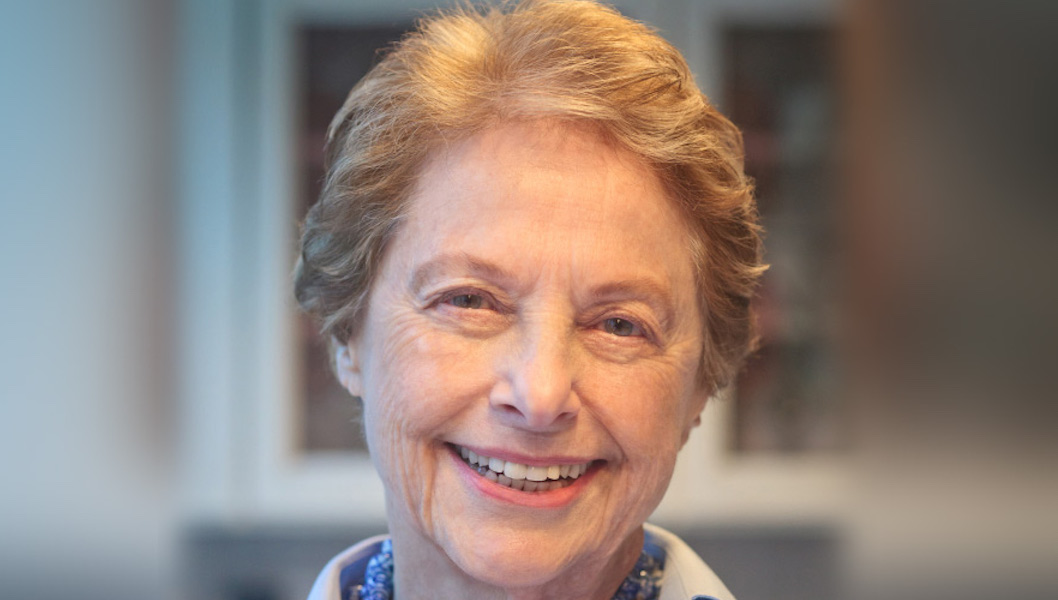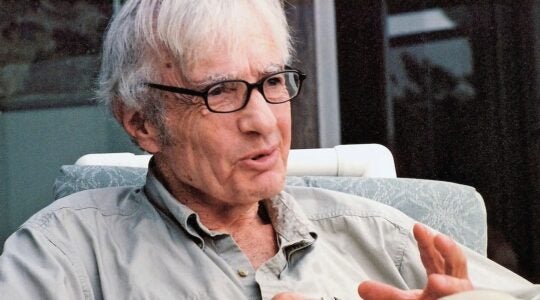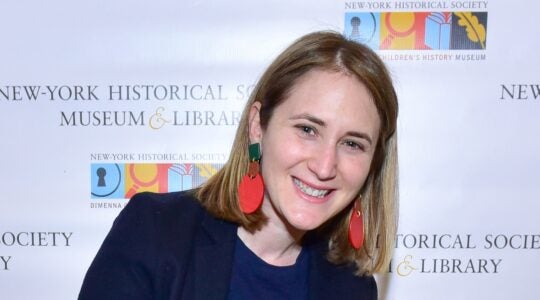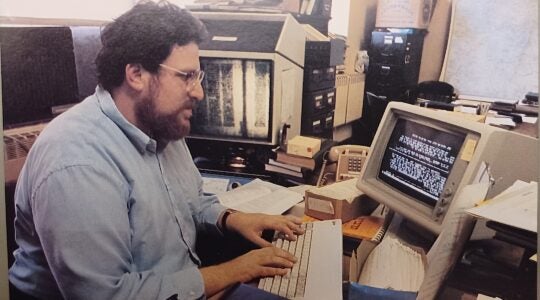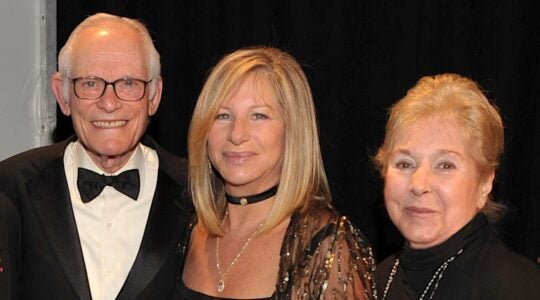(JTA) — Growing up in a Jewish home in Sheepshead Bay, Brooklyn, Mimi Sheraton seemed destined for a life in food. Her father, Joseph, sold wholesale fruit and vegetables to vendors in the Lower East Side, and her maternal grandmother, Greta Breit, was a talented cook who made her strictly kosher food from scratch.
Her mother Beatrice, meanwhile, had a “certain low-key snobbish pride about her Austrian style of cooking” and eschewed Jewish dietary laws in favor of culinary exploration. “My mother supplemented her Eastern European Jewish dishes with a wide repertory of American recipes from newspaper clippings: lobster Newburg, shrimp creole, her take on on subgum chow mein, creamed chicken a la king in puff pastry,” Sheraton wrote in her 2004 memoir “Eating My Words.”
Sheraton, born Miriam Schulman, combined all of these influences to become one of the best-known food critics and writers of her generation. During a six-decade career, she served as a contributing editor and critic for New York magazine and, from 1976 to 1983, as the food and restaurant critic for The New York Times. She was a frequent contributor to other magazines, and the author of some 16 books, including a classic history of an iconic Jewish food, “The Bialy Eaters: The Story of a Bread and a Lost World.”
Sheraton died on Thursday in Manhattan. She was 97.
Sheraton, the first woman to serve as the Times’ chief restaurant critic, was widely praised for the research and sense of history she brought to her role as a critic and a journalist. “The most prominent characteristic of her reviews was the vast amount of knowledge she brought to the job and the enlivened, precise language she used to convey that information,” wrote Charlotte Druckman, in her 2019 book “Women On Food.” “It was service journalism with expertise and voice.”
Sheraton brought that expertise to the bialy, the sometimes overlooked cousin of the bagel. “‘The Bialy Eaters’ is essential reading for anyone who cares about Jewish and New York food culture, a book about the sadness and horror baked into a food she loves,” Chris Crowley, a writer for Grub Street, wrote Friday. “Published in 2000, it follows Sheraton’s search for bialys first in Bialystock, from which it had disappeared because of the Holocaust, and then throughout the Jewish diaspora.”
Sheraton also explored her Jewish background and influences in her 1985 memoir, “From My Mother’s Kitchen: Recipes and Reminiscences.”
“We were cultural Jews for sure,” Sheraton told Hadassah magazine in 2015; she was known for hosting an elaborate Passover seder “filled with food but absent the Haggada,” the Jewish text for the Passover meal. In other essays, she described the lavish preparations made for the seders of her childhood, which were presided over by her rabbi grandfather and featured gefilte fish prepared from carp that had been swimming in a bathtub until hours before the meal.
Sheraton was born in Brooklyn on Feb. 10, 1926. She graduated from Midwood High School and from New York University. Her marriage to William Schlifman ended in divorce in 1954, although she kept that new surname that he used, Sheraton. In 1955 she married Richard Falcone, who died in 2014; she is survived by their son, Marc, and a granddaughter.
Before landing a reporting job at The New York Times, Sheraton wrote for an ad agency and Good Housekeeping, worked as food editor for Seventeen magazine, and served as a restaurant critic for Cue magazine, The Village Voice and other publications.
Her books include “Is Salami and Eggs Better Than Sex?” (1985, written with the comedian Alan King), “The Whole World Loves Chicken Soup: Recipes and Lore to Comfort Body and Soul” (1995) and “The New York Times Jewish Cookbook” (2002, with Linda Amster).
In April 2016, the Culinary Institute of America honored her as a Legend of New York Dining.
In a 2009 essay in Tablet magazine, Sheraton made note of an increasingly creative Jewish cuisine and how Jewish cooks often absorbed the flavors and techniques of whatever culture they found themselves part of.
“In a way, Jews might well have been the unwitting pioneers in what is currently celebrated as fusion cooking,” she wrote. “Now, perhaps, a new worldwide Jewish cuisine is being born that, like the old Ashkenazic and Sephardic cookery, borrows from other cultures, fusing to modern tastes while still honoring their beliefs.”
JTA has documented Jewish history in real-time for over a century. Keep our journalism strong by joining us in supporting independent, award-winning reporting.
